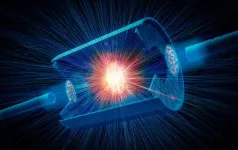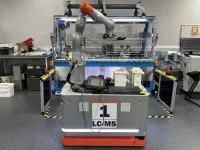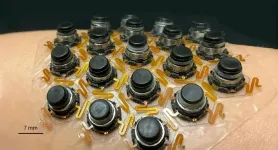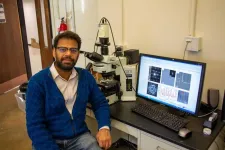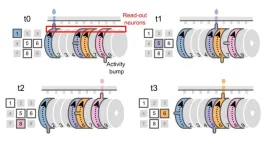(Press-News.org) New York, NY. November 6, 2024. The Lupus Research Alliance (LRA) is excited to announce the first-ever recipients of the Translational Bridge Award (TBA), established this year to accelerate the translation of groundbreaking research into potential treatments and diagnostics for lupus. The award aims to propel high-potential projects from LRA-funded foundational discoveries with strong commercialization potential or an opportunity for clinical evaluation. Five exceptional researchers have been awarded the 2024 Translational Bridge Award to tackle pressing issues, from managing pain and fatigue to developing an alternative to the widely used glucocorticoids.
Providing up to $450,000 over two years, the TBA emerged as a key initiative of LRA’s newly developed Research Roadmap, an ambitious research strategy designed to integrate LRA’s efforts across all stages of lupus research, from early discovery through clinical application. By funding innovative, milestone-driven projects with strong commercial or clinical potential, the TBA is driving scientific advances that can be quickly moved from the lab to the clinic, benefiting those with this complex disease.
“The new Translational Bridge Award addresses a critical gap in lupus research, enabling scientists to bring their most promising ideas closer to people living with lupus,” noted Teodora Staeva, Ph.D., LRA Vice President and Chief Scientific Officer. “Each of the projects selected has the potential to change the way lupus is treated or diagnosed, making a tangible impact on the quality of life for millions.”
Read below to find out what these talented investigators aim to accomplish:
Innovating Pain and Fatigue Management
Cynthia Aranow, M.D., The Feinstein Institutes for Medical Research
Joint and muscle pain, as well as fatigue, are extremely common and debilitating symptoms of systemic lupus erythematosus (SLE), significantly affecting quality of life even when the disease is relatively controlled. Dr. Aranow will evaluate the use of a new, non-toxic, non-painful device that stimulates the vagus nerve —a highway that carries information to and from the brain to various internal organs— to reduce pain and fatigue in people with SLE. This device could offer a non-drug solution that people with lupus could eventually use at home, potentially revolutionizing how these debilitating symptoms are managed.
Transforming Lupus Nephritis Diagnostics
Marcus Clark, M.D., The University of Chicago
Lupus nephritis (LN) is one of the most severe complications of lupus, often leading to kidney damage and failure. Kidney biopsies are the gold standard for diagnosis and treatment guidance but are not sensitive enough to detect meaningful changes in distinct structures of the kidney. Dr. Clark will develop an artificial intelligence tool to more precisely identify and classify immune cell states and neighborhoods (groups of cells with various functions near each other in tissue) and distinct structures in existing kidney biopsy samples. This could help doctors better predict which therapies will work best for each patient, significantly improving treatment outcomes.
Pioneering Alternatives to Glucocorticoids
Sarah Jones, Ph.D., Monash University
Glucocorticoids (steroids), though widely used to control inflammation in lupus, come with serious side effects that can worsen patients’ overall health. Associate Professor Jones aims to develop a new treatment that would boost a protein called GILZ (Glucocorticoid-Induced Leucine Zipper), which offers the anti-inflammatory properties of glucocorticoids without their harmful side effects. This research could pave the way for safer, more effective lupus treatments, shifting the paradigm of how lupus is managed.
Advancing Novel Therapies for Lupus
Timothy Niewold, M.D., The Hospital for Special Surgery
While lupus treatments have advanced, there remains an urgent need for safer, more effective therapies. Dr. Niewold and his collaborator Vineet Gupta at UTMB have developed a first-of-its-kind drug called ONT01, which targets a molecule called ITGAM. He will test ONT01, which has shown promising results in mouse models, in a phase 1b trial to assess its safety in people with lupus. This trial could open the door to a new class of treatments that target lupus at the molecular level.
Unlocking the Mystery of Brain Fog in Lupus
Zahi Touma, M.D., Ph.D., University Health Network
Many people with lupus experience cognitive impairment, or “brain fog;” yet there are no reliable biomarkers to diagnose or monitor this condition. Dr. Touma previously identified two potential blood biomarkers linked to cognitive impairment in people with lupus. This project will validate these biomarkers in a new group of people with lupus, potentially leading to a new diagnostic test for neuropsychiatric lupus and enabling earlier and more accurate detection.
About Lupus
Lupus is a chronic, complex autoimmune disease that affects millions of people worldwide. In lupus, the immune system, meant to defend against infections, produces autoantibodies that mistake the body’s own cells as foreign, causing other immune cells to attack organs such as the kidneys, brain, heart, lungs and skin, as well as blood and joints. Ninety percent of people with lupus are women, most often diagnosed between the ages of 15-45. Black, Latinx, Indigenous, Asian and Pacific Islander people are disproportionately affected by lupus and more likely to experience severe lupus symptoms.
About the Lupus Research Alliance
The Lupus Research Alliance is the largest non-governmental, non-profit funder of lupus research worldwide. The organization aims to transform treatment by funding the most innovative lupus research, fostering diverse scientific talent, and driving discovery toward better diagnostics, improved treatments and ultimately a cure for lupus. Because the Lupus Research Alliance’s Board of Directors funds all administrative and fundraising costs, 100% of all donations goes to support lupus research programs. For more information, please visit the LRA at LupusResearch.org and on social media at: X, Facebook, LinkedIn, and Instagram.
END
Lupus Research Alliance announces inaugural recipients of Translational Bridge Award
2024-11-06
ELSE PRESS RELEASES FROM THIS DATE:
Brain stars hold our memories
2024-11-06
A study published in Nature by researchers at Baylor College of Medicine changes the way we understand memory. Until now, memories have been explained by the activity of brain cells called neurons that respond to learning events and control memory recall. The Baylor team expanded this theory by showing that non-neuronal cell types in the brain called astrocytes – star-shaped cells – also store memories and work in concert with groups of neurons called engrams to regulate storage and retrieval of memories.
“The prevailing idea is that the formation and recall of memories only involves neuronal engrams that are activated by certain ...
Imaging nuclear shapes by smashing them to smithereens
2024-11-06
UPTON, N.Y. — Scientists have demonstrated a new way to use high-energy particle smashups at the Relativistic Heavy Ion Collider (RHIC) — a U.S. Department of Energy (DOE) Office of Science user facility for nuclear physics research at DOE’s Brookhaven National Laboratory — to reveal subtle details about the shapes of atomic nuclei. The method, described in a paper just published in Nature, is complementary to lower energy techniques for determining nuclear structure. It will add depth to scientists’ understanding of the nuclei that make up the ...
AI-driven mobile robots team up to tackle chemical synthesis
2024-11-06
Researchers at the University of Liverpool have developed AI-driven mobile robots that can carry out chemical synthesis research with axtraordinairy efficiency.
In a study publishing in the journal Nature, researchers show how mobile robots that use AI logic to make decisions were able to perform exploratory chemistry research tasks to the same level as humans, but much faster.
The 1.75-meter-tall mobile robots were designed by the Liverpool team to tackle three primary problems in exploratory chemistry: performing the reactions, ...
New haptic patch transmits complexity of touch to the skin
2024-11-06
A Northwestern University-led team of engineers has developed a new type of wearable device that stimulates skin to deliver various complex sensations.
The thin, flexible device gently adheres to the skin, providing more realistic and immersive sensory experiences. Although the new device obviously lends itself to gaming and virtual reality (VR), the researchers also envision applications in healthcare. For example, the device could help people with visual impairments “feel” their surroundings or give feedback to people with prosthetic limbs.
The ...
Safety of simultaneous vs sequential mRNA COVID-19 and inactivated influenza vaccines
2024-11-06
About The Study: In this randomized clinical trial assessing simultaneous vs sequential administration of mRNA COVID-19 and inactivated influenza vaccines, reactogenicity was comparable in both groups. These findings support the option of simultaneous administration of these vaccines.
Corresponding Author: To contact the corresponding author, Emmanuel B. Walter, MD, MPH, email chip.walter@duke.edu.
To access the embargoed study: Visit our For The Media website at this link https://media.jamanetwork.com/
(doi:10.1001/jamanetworkopen.2024.43166)
Editor’s Note: Please see the article for additional information, including other ...
Long-term risk of autoimmune and autoinflammatory connective tissue disorders following COVID-19
2024-11-06
About The Study: This retrospective cohort study with an extended follow-up period found associations between COVID-19 and the long-term risk of various autoimmune and autoinflammatory connective tissue disorders. Long-term monitoring and care of patients is crucial after COVID-19, considering demographic factors, disease severity, and vaccination status, to mitigate these risks.
Corresponding Author: To contact the corresponding author, Solam Lee, MD, PhD, email solam@yonsei.ac.kr.
To access the embargoed study: Visit our For The Media website ...
Mount Sinai researchers have uncovered the mechanism in the brain that constantly refreshes memory
2024-11-06
Mount Sinai researchers have discovered for the first time a neural mechanism for memory integration that stretches across both time and personal experience. These findings, reported in Nature, demonstrate how memories stored in neural ensembles in the brain are constantly being updated and reorganized with salient information, and represent an important step in deciphering how our memories stay current with the most recently available information. This discovery could have important implications for better understanding adaptive memory processes ...
Breakthrough in energy-efficient avalanche-based amorphization could revolutionize data storage
2024-11-06
The atoms of amorphous solids like glass have no ordered structure; they arrange themselves randomly, like scattered grains of sand on a beach. Normally, making materials amorphous — a process known as amorphization — requires considerable amounts of energy. The most common technique is the melt-quench process, which involves heating a material until it liquifies, then rapidly cooling it so the atoms don’t have time to order themselves in a crystal lattice.
Now, researchers ...
Scientists discover how specific E. coli bacteria drive colon cancer
2024-11-06
Ghent, 7 November 2024 – Scientists have uncovered how certain E. coli bacteria in the gut promote colon cancer by binding to intestinal cells and releasing a DNA-damaging toxin. The study, published in Nature, sheds light on a new approach to potentially reduce cancer risk. The study was performed by the teams of Prof. Lars Vereecke (VIB-UGent Center for Inflammation Research) and Prof. Han Remaut (VIB-VUB Center for Structural Biology).
Bacteria and colon cancer
Colon cancer ranks as the third most prevalent and deadliest type of cancer. Alarmingly, its incidence is rising, particularly ...
Brain acts like music box playing different behaviours
2024-11-06
Neuroscientists have discovered brain cells that form multiple coordinate systems to tell us “where we are” in a sequence of behaviours. These cells can play out different sequences of actions, just like a music box can be configured to play different sequences of tones. The findings help us understand the algorithms used by the brain to flexibly generate complex behaviours, such as planning and reasoning, and might be useful in understanding how such processes go wrong in psychiatric ...
